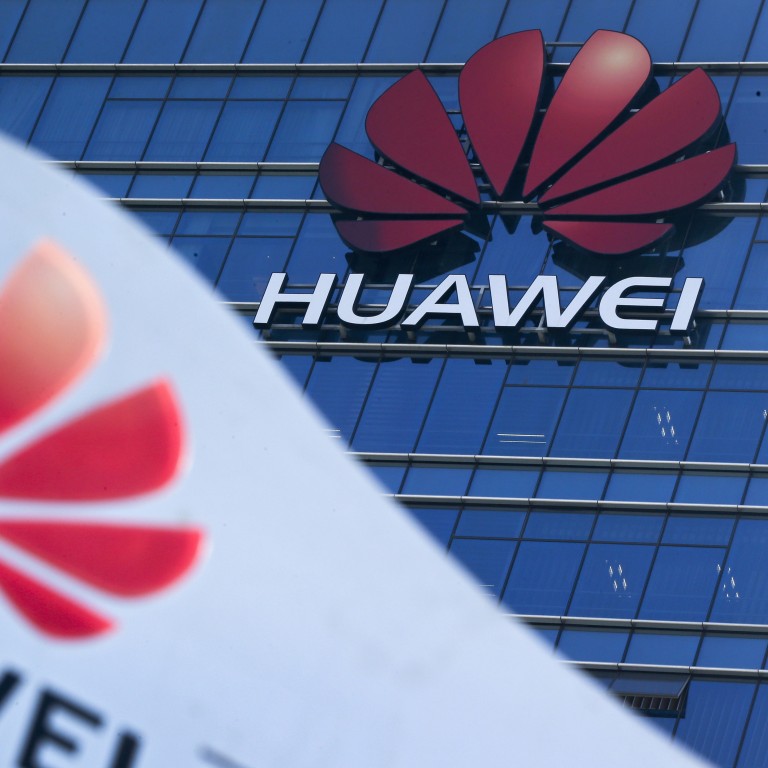
Huawei’s planned lawsuit against the US government could help it gain friends in the West, experts say
- The landmark lawsuit is likely to be watched closely, and the result could affect how other countries perceive its equipment
- The case also comes as Huawei CFO Meng Wanzhou, who is awaiting possible extradition to the US, sues Canada for violating rights
Huawei Technologies’ planned lawsuit against the US government signals that the company is prepared to go through an open public process to clear its name, a move which could make other Western countries feel more confident about using Huawei’s equipment, according to experts.
The Chinese telecommunications equipment company is planning to sue the US government for banning federal agencies from using its equipment and will announce the lawsuit on Thursday, a person familiar with the matter said.
The lawsuit also comes as Sabrina Meng Wanzhou, Huawei’s chief financial officer who is currently awaiting possible extradition to the US, sued Canada’s government last Friday for allegedly violating her constitutional rights.
Huawei declined to comment on whether it was planning a lawsuit against the US.
“If Huawei wants to maintain a presence in the West, it has to assure its other customers that it was not worthy of the ban,” said Eric Crusius, partner at law firm Holland & Knight. “The most efficient and impactful way it can do that is through a lawsuit so long as it has a legitimate basis to argue against the ban and its submissions to the courts are not frivolous.”
The US has accused Huawei of having ties to the Chinese government and suggested its telecoms gear could be used for Chinese intelligence purposes – a claim the Shenzhen-based company has vehemently denied. In recent months, the US also has pressured its Western allies to exclude Huawei from supplying equipment for their upcoming 5G mobile networks.
Huawei is also battling nearly two dozen US charges of financial fraud, trade sanction violations and intellectual property theft.
The US National Defence Authorisation Act (NDAA) passed last August explicitly bans government agencies from using equipment from certain companies, including Huawei, ZTE Corp, video surveillance equipment firms Hangzhou Hikvision Digital Technology and Dahua and radio transmission gear company Hytera.
The government has a right to bar companies in legislation as long as “the harm suffered by the company is not punishment, but protects a valid government interest” such as protection from spying, Crusius said.
Although the NDAA ban is aimed at federal agencies, Huawei’s business with private companies could also be affected if the firms have contracts with the US government and are prohibited from using Huawei equipment.
As the case proceeds, Huawei’s lawyers may be able to obtain information through the discovery process on what caused the company to be targeted in the NDAA, forcing the government to back up the statements it makes about Huawei posing a risk to national security, Crusius said.
“Huawei may be able to argue that the US government has no evidence of such spying and this act was purely done as leverage in the larger trade dispute between the countries,” he said. A win for Huawei, he added, was “improbable, but not impossible” and the case could potentially drag on for years.
Cases involving foreign companies suing the US government are rare. One other similar case in recent times is that of Moscow-based antivirus firm Kaspersky Lab, which was banned from US government networks on national security concerns. Kaspersky Lab eventually lost its battle to overturn the ban.
Huawei’s lawsuit against the US likely will be closely watched as a landmark case, and the result could affect how other countries perceive its equipment, especially if the US is able to present evidence showing it poses a true national security risk, according to a lawyer who spoke on condition of anonymity because of the matter’s sensitivity.
“There is a possibility that information could come out in the public domain that is harmful to Huawei’s reputation, that isn’t already out there,” the lawyer said, adding that the US ban has already affected Huawei’s business dealings in other parts of the world.
“Certainly [the fact that Huawei is filing the lawsuit] shows some level of confidence and the willingness to spend significant resources making its case,” the lawyer said. … “It seems that Huawei is willing to take the risks.”
European nations such as Germany and Britain are still weighing the risks of using Huawei’s products. Last month, British intelligence concluded it was able to mitigate the risks of using Huawei’s gear in upcoming 5G networks, and Germany’s interior ministry said in a statement to CNBC that it had no plans to directly exclude particular 5G manufacturers.
Huawei opened its new Cybersecurity' Transparency Centre in Brussels on Tuesday, to help build “a secure and trustworthy digital environment” in Europe, the company said.
If Huawei were to win its lawsuit against the US, the victory would help overturn the US’ federal ban on Huawei equipment and possibly lead to the Chinese company’s being awarded significant damages, according to Paul Haswell, a partner at law firm Pinsent Masons.
If it were to lose, however, “then the US will remain an almost impossible market for Huawei”, Haswell said.

